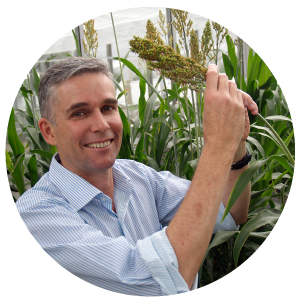Opinion: But the voyage is just a small part of the story
 We hosted the family Christmas dinner this year.
We hosted the family Christmas dinner this year.
For some reason - maybe because we are a bunch of scientists and engineers - we started talking about the mega-trends of the future, such as hydrogen cars, automation and carbon neutrality.
It got me thinking about the agriculture industry of the future, which then made me think about Mad Max: Fury Road.
Why?
Well, because in this dystopian future, there is no agriculture and the whole movie was about securing the only things that matter - fuel and water.
This is a little bit like modern agriculture too.
Nevertheless, it is great that our beloved sunburned country has not yet transformed into the Mad Max desert hellscape that climate change promises to deliver at its most rampant.
Without a doubt, hydrogen or electric farm vehicles will become the new norm, with onfarm generation of the required fuel possible and desirable.
Smart farms will keep getting smarter and smarter and require less hands-on intervention and less labour.
Our traceability and onfarm carbon neutrality will, in all likelihood, become a legislated requirement.
The bar will be set ever higher by many of our trading partners, especially the ones willing to pay the best market prices for what we can produce to feed and clothe them.
Whatever your preferences are, if you are a primary producer, you will be spending more and more time sitting in front of a computer - with one eye on the weather, another on the grain and beef prices, another on the drone-generated report of the crop canopy temperature and yet another on your automated harvester.
That's right, you will need at least four eyes.
So, you better get to the optometrist sooner rather than later - and invest in multiple monitors.
Apart from all those management tools that new technology and new farm chemistries may have to offer us, there are also new genetics.
At my university - and many other research institutions, both public and private - there is great effort going into not just improving the current genetics of the plants and animals we farm, but in more thoughtfully matching those genetics with the management tools and environments of the future.
Tools such as genome editing and genomic prediction will have a great impact on the crops you can plant - a bit like the options you put on your SUV.
You will have the potential to select the same variety, only taller or shorter, earlier or later maturity, earlier or later suitability for planting and other choices.
And maybe you don't even have to lock-in the options after you plant.
There are now technologies that could potentially allow you switch genes on or off during the crop season, allowing you to delay or bring forward flowering, change the grain quality or even deliver cold tolerance for a few weeks.
Some of these tools are ready to go - and commercial - right now.
Others are a few years away.
The agtech sector is exploding and the challenges of changing climates and markets mean we have to be more nimble to ensure that the Mad Max scenario remains firmly where it should be - in fiction.
SOURCE: Comment piece by QAAFI's Centre for Crop Science Director Prof Ian Godwin published in Farm Weekly

